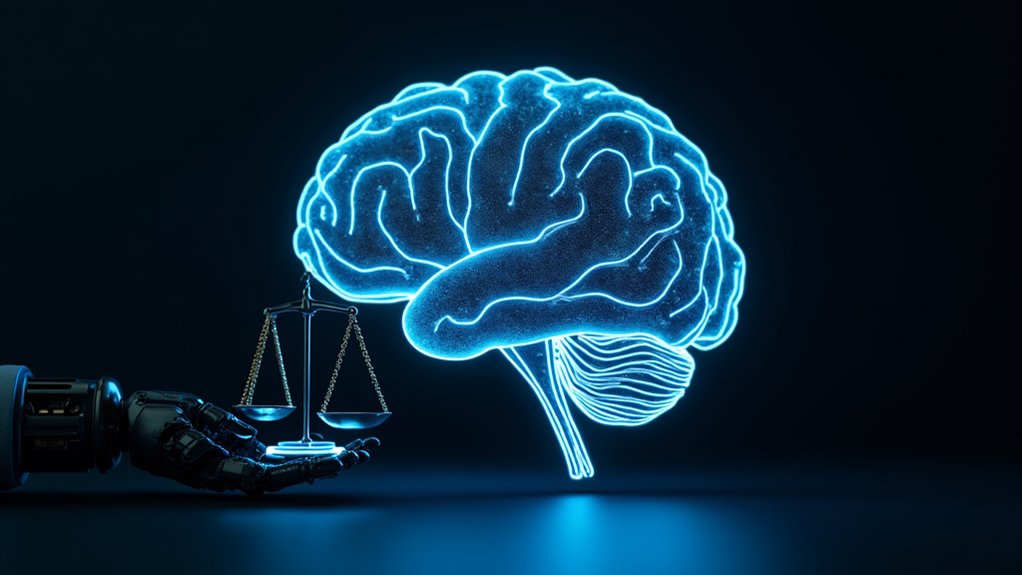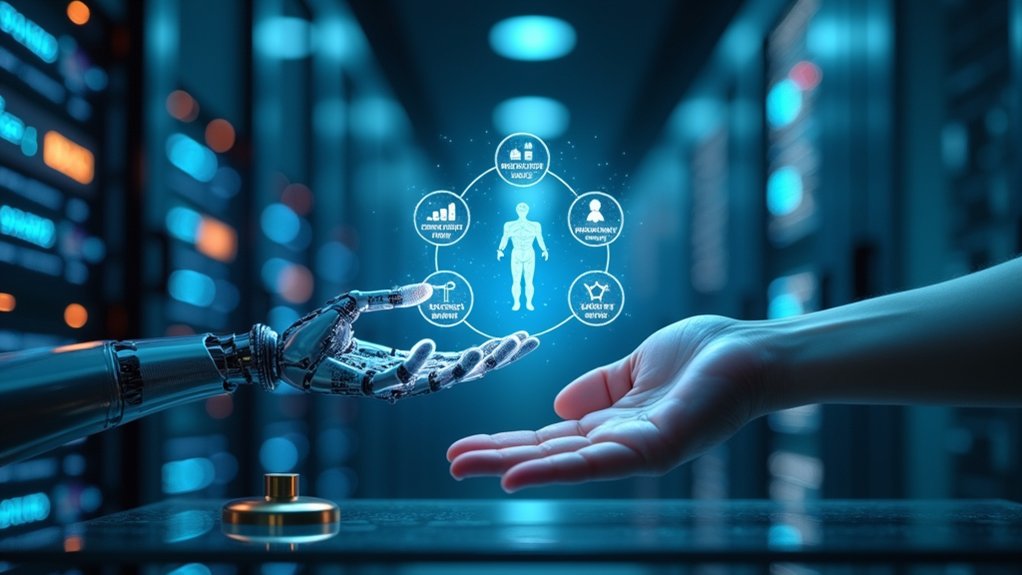AI ethics refers to principles guiding responsible AI development. These include fairness, transparency, privacy, accountability, and safety. Major organizations have created frameworks to help developers balance innovation with ethical safeguards. Challenges exist in implementing these principles due to cultural differences and rapid technological change. Researchers, policymakers, ethicists, and industry leaders all play essential roles in ensuring AI benefits society equally. The path to truly ethical AI requires ongoing collaboration and vigilance.

Why is ethics becoming a central concern in artificial intelligence? As AI systems grow more powerful and widespread, experts worry about potential harms if these technologies aren't developed carefully. AI can make decisions that affect people's lives, from loan approvals to medical treatments, making ethical considerations vital.
AI ethics focuses on key principles that guide responsible development. Fairness means AI shouldn't discriminate against certain groups. Transparency guarantees people understand how AI makes decisions. Privacy protects personal information, while accountability establishes who's responsible when AI systems cause problems. Safety principles aim to prevent harm to humans.
Fairness, transparency, privacy, accountability, and safety form the foundation of responsible AI development.
These ethical principles matter because they help prevent misuse of AI and build public trust. When people believe AI is developed ethically, they're more likely to accept these new technologies. Ethical AI also guarantees the benefits of these powerful tools are shared by everyone in society, not just a few. With over 90 organizations having developed more than 200 principles, the field demonstrates widespread recognition of ethics' importance.
Several organizations have created frameworks to guide ethical AI development. The IEEE, European Union, OECD, and major tech companies like Google and Microsoft have all published ethical guidelines for AI. These frameworks provide roadmaps for developers to follow. Effective ethical guidelines emphasize human agency and oversight to empower informed decision-making while protecting fundamental rights.
Despite these efforts, putting ethics into practice remains challenging. Converting abstract principles into technical solutions isn't easy. Companies must balance innovation with safeguards, and ethical standards vary across cultures. The rapid pace of AI advancement makes keeping up difficult.
Many groups play important roles in AI ethics. Researchers and developers build the systems, while policymakers create regulations. Ethicists provide moral guidance, industry leaders set company standards, and civil society groups advocate for the public interest. Responsible AI initiatives aim to create systems that are trustworthy and safe while respecting enduring values.
Looking ahead, the field of AI ethics continues to evolve. Experts are working on standardized practices, better education for AI developers, certification programs, and international cooperation. As AI becomes more powerful, guaranteeing it's developed responsibly remains a vital goal for society.
Frequently Asked Questions
How Do We Measure AI Fairness Objectively?
Measuring AI fairness objectively involves using multiple statistical methods. Researchers track metrics like demographic parity, which checks if predictions are equal across groups, and equalized odds, which compares error rates.
There's no single perfect measure, as different metrics can conflict. Experts recommend using several complementary approaches, conducting intersectional analysis, and continuously monitoring systems over time.
The field faces challenges because fairness definitions vary by context.
Can AI Systems Truly Understand Ethical Nuances?
Current AI systems can't truly understand ethical nuances like humans do. They lack genuine empathy and intuition.
While AI can identify patterns in ethical data and apply rules consistently, it struggles with context, abstract moral concepts, and cultural subtleties.
Research continues on making AI better at ethical reasoning, but today's systems primarily serve as tools to support human decision-makers rather than replace their moral judgment.
Who Holds Legal Liability for Ai-Caused Harm?
Legal liability for AI-caused harm remains unclear in many jurisdictions.
Currently, responsibility may fall on developers, manufacturers, deployers, or users, depending on circumstances.
Recent cases show companies like Uber and Amazon facing consequences for AI failures.
The EU's AI Liability Directive introduces stricter standards, while U.S. regulations are still developing.
Courts struggle with applying traditional liability concepts to AI's "black box" nature and complex causation chains.
How Might Different Cultures Define Responsible AI Differently?
Different cultures define responsible AI based on their core values.
Western societies prioritize individual rights and transparency.
Eastern perspectives favor collective well-being and societal harmony.
The Global South focuses on addressing inequality and development challenges.
Religious viewpoints incorporate their specific ethical frameworks – from Islamic Sharia principles to Buddhist compassion.
These cultural differences shape how nations approach AI governance, data privacy, and algorithmic decision-making around the world.
What Security Protocols Prevent Malicious AI Manipulation?
Security protocols protecting AI systems include data encryption, differential privacy, and input validation.
Organizations use strict access controls and continuous monitoring to track who uses AI models.
Adversarial training helps systems resist attacks, while regular security audits identify weaknesses.
Anomaly detection catches unusual behaviors that might signal tampering.
Multi-party computation allows secure processing of sensitive data without exposing it to potential attackers.









